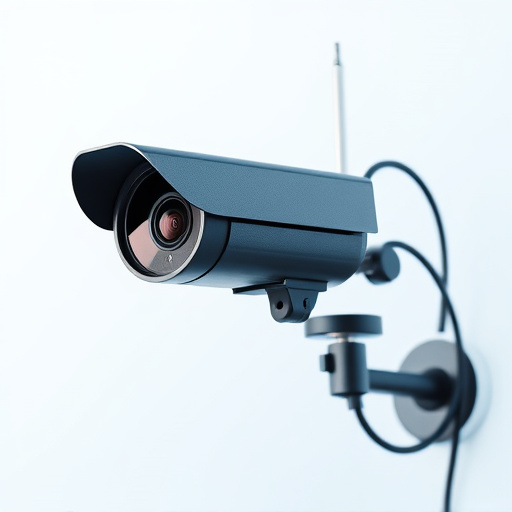Advanced hidden sound recorders, disguised as everyday items like pens or floral arrangements, offer high-quality audio capture without detection. While useful for surveillance, security, and investigative purposes, their ethical implications and legal restrictions require careful consideration due to varying privacy laws globally. Spy cameras and microphones raise significant privacy concerns, highlighting the need for responsible usage by consumers and professionals alike, especially in public spaces or workplaces, where consent should always be obtained before recording conversations or sounds. Effective risk mitigation strategies include visual inspections, specialized detection tools, and routine security checks.
Hidden sound recorders, often disguised as everyday objects, have captured the public’s imagination with their secretive capabilities. This technology combines advanced spy cameras and microphones to record audio surreptitiously. The article delves into the mechanics of these devices, exploring their integration of covert spy camera and microphone systems for diverse applications. We also examine legal boundaries, detection methods, and ethical considerations surrounding this fascinating yet controversial technology.
Understanding Hidden Sound Recorders: Unveiling the Technology
Hidden sound recorders, also known as spy cameras and microphones, have evolved into sophisticated pieces of technology designed to capture audio discreetly and undetected. These devices are integrated into everyday objects like pens, buttons, and even floral arrangements, making them near-invisible to the naked eye. The core technology behind these hidden recorders involves advanced audio sensors and miniaturized electronics that allow for high-quality sound capture while maintaining a compact form factor.
The ability to record without being noticed opens up a range of applications—from surveillance and security to personal use. However, it’s crucial to consider the ethical implications and legal restrictions surrounding their usage. Many countries have strict regulations regarding hidden cameras and microphones to protect privacy rights. Understanding these technologies is essential for both consumers and professionals alike, ensuring that they are used responsibly and in compliance with local laws.
Spy Camera and Microphone Integration: A Powerful Duo
In the realm of covert surveillance, the integration of a spy camera and microphone forms a formidable duo capable of capturing unseen and unheard moments with remarkable clarity. These sophisticated devices, seamlessly combined, offer users a comprehensive view and audio recording capability, making them invaluable tools for various purposes. The spy camera, often disguised as everyday objects, captures high-definition visuals, while the microphone amplifies and records ambient sound, ensuring every detail is preserved.
This integration enhances privacy, security, and investigative capabilities. Whether it’s monitoring a suspicious activity, documenting evidence, or simply capturing memories discreetly, the spy camera and microphone combination provides users with a powerful and versatile tool. In today’s digital era, where information is power, these devices enable individuals to navigate their surroundings with enhanced awareness, ensuring nothing goes unnoticed or unrecorded.
Applications: Where Are These Devices Used?
Hidden sound recorders, often integrated with spy cameras and microphones, find applications across various sectors due to their discreet nature. These devices are particularly useful in scenarios requiring covert surveillance, such as law enforcement investigations, where capturing audio evidence without alerting subjects is paramount. They’re also commonly used by journalists and researchers for sensitive interviews or field reporting, ensuring unaltered recordings.
In the corporate world, hidden sound recorders aid in quality control and training by enabling companies to secretly record employee interactions, providing valuable insights into workplace dynamics. Additionally, they play a role in home security systems, offering peace of mind by capturing potential intrusions or suspicious activities. This versatility makes these devices a preferred choice for those needing reliable and unnoticeable audio recording solutions.
Legal Considerations: Ethical Use and Privacy Concerns
Using a hidden sound recorder, such as those incorporated into spy cameras with microphones, raises significant legal and ethical considerations regarding privacy. In many jurisdictions, surreptitiously recording conversations or sounds without explicit consent is illegal and can result in severe penalties. Even if it’s not explicitly banned, ethical guidelines suggest that recording people or environments without their awareness can invade personal privacy and erode trust.
Privacy concerns are particularly acute when spy cameras and microphones are used in public spaces or workplaces. Employees may feel their conversations aren’t private, leading to a breakdown of communication and trust. Similarly, individuals in public places might feel they’re being monitored constantly, impacting their sense of freedom and autonomy. Balancing the potential benefits of hidden recording with the need to respect privacy is essential for ethical use in both personal and professional settings.
Detection Methods: How to Spot a Hidden Sound Recorder
Hidden sound recorders, often referred to as spy cameras or microphones, can be hard to detect due to their sophisticated designs and advanced features. One common method to spot these devices is through visual inspection, looking for any unusual objects or attachments that might not belong. This includes small, compact cameras or odd-shaped objects placed in common areas like offices, meeting rooms, or even private spaces within homes.
Another approach involves using specialized detection tools and technologies. Some advanced devices can pick up electromagnetic signals emitted by spy cameras and microphones, indicating their presence. These tools are particularly useful for security professionals who regularly conduct sweeps to ensure privacy and safety. Additionally, regular maintenance checks and physical security measures can significantly reduce the risk of hidden sound recorders, as they disrupt potential installations and deter would-be intruders.
